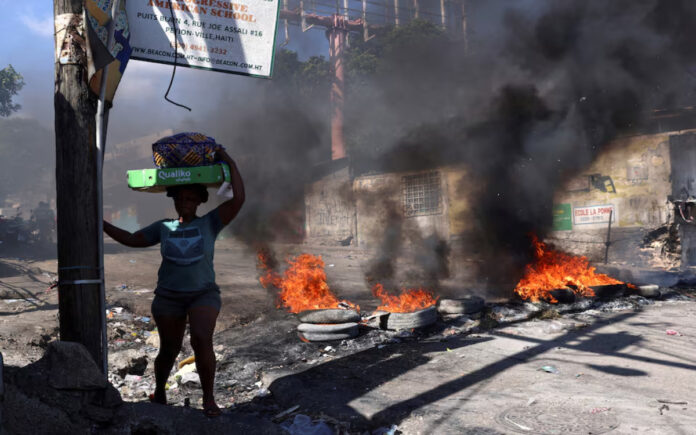Port-au-Prince: The humanitarian crisis in Haiti is rapidly deteriorating as powerful gangs tighten their hold over Port-au-Prince, leaving security forces overwhelmed and key infrastructure at risk of collapse, according to a statement released by Save the Children.
The aid organization reported that in the first quarter of this year, more than 78,500 people were displaced—more than double the number recorded during the same period last year. The surge in violence and instability has left communities struggling for survival, with children facing the brunt of the crisis.
“Children in Haiti are trapped in a nightmare,” said Chantal Sylvie Imbeault, Save the Children’s Country Director in Haiti. She added that armed groups now control nearly every neighborhood in the capital and are seizing major escape routes, making it increasingly difficult for families to flee the violence.
Leslie Voltaire, who served as rotating president of Haiti’s transitional presidential council from October to March, is currently in Honduras for the Community of Latin American and Caribbean States (CELAC) summit. The summit offers Haiti a chance to rally regional support for security initiatives aimed at curbing gang control.
However, the transitional council has been losing support from the Haitian public as the crisis worsens. Protests erupted last week, with thousands taking to the streets to express frustration over the government’s inability to rein in gang violence.
In a controversial move that underscores growing desperation, the current head of the transition council, Fritz Alphonse Jean, announced on Thursday that the council would collaborate with members of the Brigade for the Security of Protected Areas—a paramilitary group with a history of clashing with police. The group, originally formed as an environmental agency, has evolved into a militarized force aligned with former rebel leader Guy Philippe.
Also Read | US to Reevaluate Fluoride in Drinking Water Amid Health Concerns
Philippe, who orchestrated a 2004 rebellion that ousted President Jean-Bertrand Aristide, was deported back to Haiti in 2023 after serving time in the U.S. for money laundering tied to drug trafficking. Since his return, he has made efforts to re-enter Haiti’s political landscape.
On the international front, Kenya continues to lead efforts to restore order in Haiti. Roughly 1,000 security personnel are part of a multinational mission, with Kenyan officers making up around 75% of the contingent. Since arriving last June, the force has engaged in multiple clashes with gang factions. These encounters have resulted in injuries and at least one reported fatality among Kenyan personnel.
Also Read | New Study Reinforces Link Between Maternal Diabetes and Autism in Children
Despite worsening conditions on the ground, humanitarian assistance remains scarce. “Governments are making drastic cuts to foreign aid,” Save the Children warned. The aid group’s statement also referenced former U.S. President Donald Trump’s freeze on foreign aid upon taking office. Though over $64 million was eventually approved to support the Haitian police and the Kenya-led mission, ongoing funding remains uncertain.
As the crisis intensifies, aid organizations and local leaders are urging the international community to increase support before the humanitarian situation spirals further out of control.



